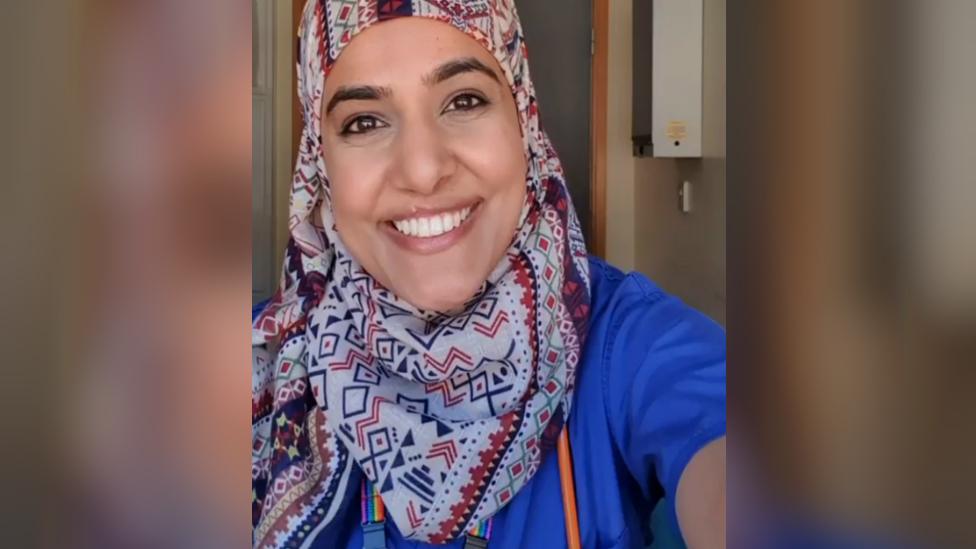Coronavirus: The NI doctors observing Ramadan during a pandemic
- Published
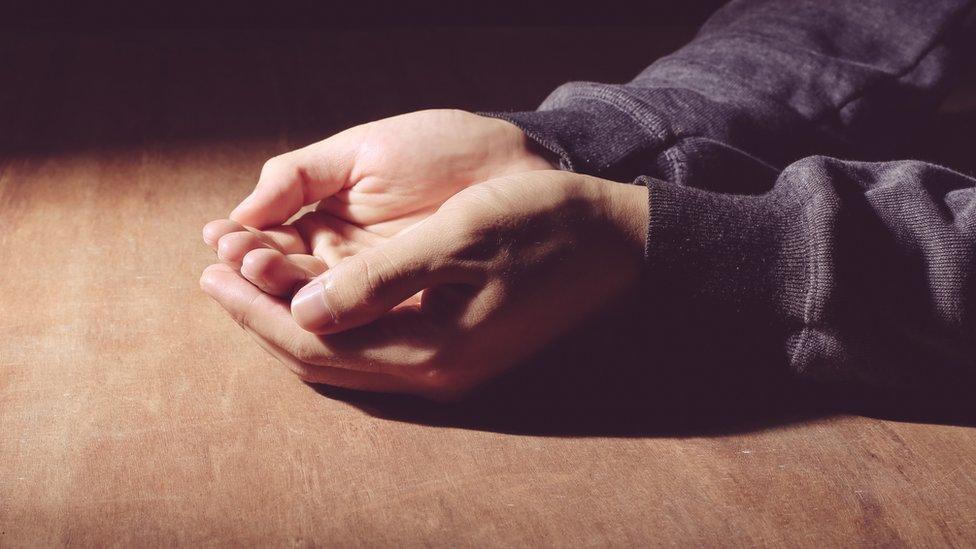
Family and friends will adapt to virtual prayer services while breaking their daily fast together via video calls
Ramadan is the most important date in the Islamic calendar.
But amid a global pandemic, this year's celebrations will look very different for Muslims across Northern Ireland.
Traditionally a time for prayer, reflection and fasting, the month-long festival will this year be celebrated behind closed doors.
Family and friends will adapt to virtual prayer services while breaking their daily fast together via video calls.
The changes will be significant for most but for those working on the front line during the pandemic, they pose even greater challenges.
For Dr Bushra Khan, working in the community means she must change her personal protective equipment (PPE) each time she comes into contact with a new patient.
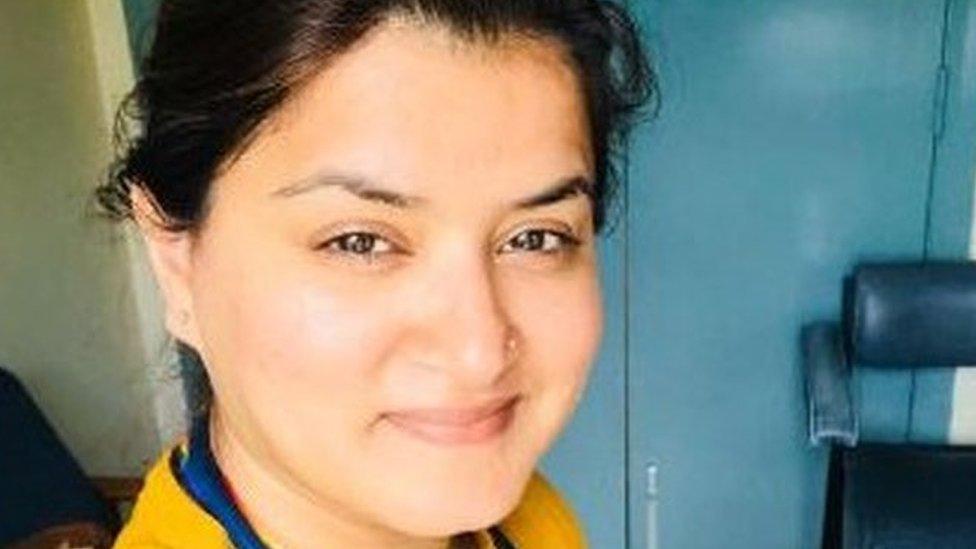
Dr Bushra Khan says homes will be converted into mosques for prayer during Ramadan
"This year, we won't be able to gather like before, but there's still some positivity to it," she said.
"We can't gather but we can convert our own houses into mosques and pray to feel more connected to Allah."
Dr Khan cleans her car between visits and her work station every time she arrives back in the office.
It's a "hectic" routine, she said, but necessary to protect herself, her patients and young family.
Dehydration fears
Fasting is an important element of the Muslim faith and makes up one of the five pillars of Islam.
Those fasting are also unable to drink water - a difficult task when working long hours in full-body PPE.
Dr Sajida Mushtaq said Ramadan would be extra challenging this year.
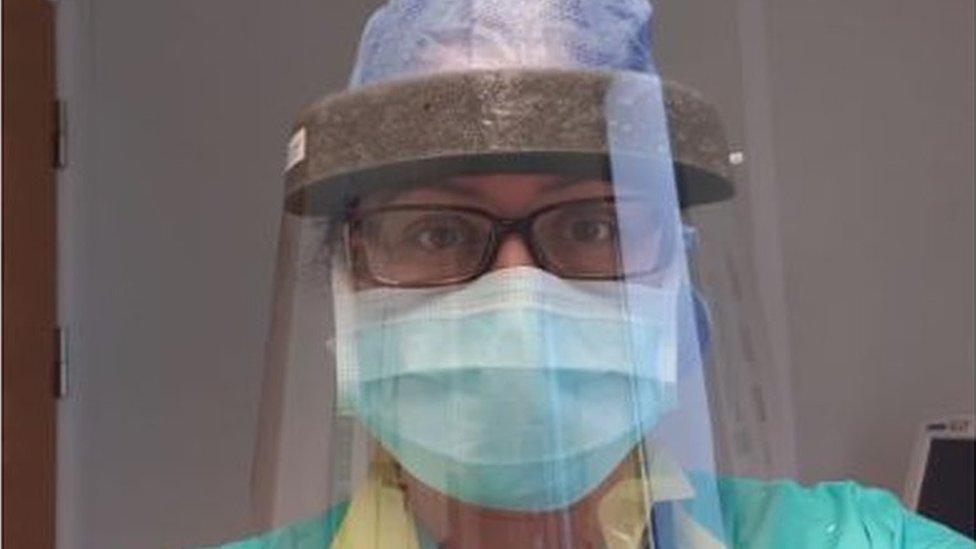
Dr Sajida Mushtaq hopes Ramadan this year will give Muslims room to rebuild relationships
"When I go into work each day, I don't know what I'm going to be faced with, we have to wear lots of PPE to keep ourselves safe, but it can also lead to dehydration," she said.
"It's going to be difficult but then again every Ramadan has been different.
"We celebrated it in school while sitting exams, we had it as first-time parents with a new baby, we had it while juggling working hours and hot summer days, and this year we will have it during a global pandemic."
Mum to seven-year-old Hannan Iqbal and seven-month-old Aizah Rana, Dr Mushtaq cut her maternity leave short last month to return to the NHS front line during the coronavirus crisis.
Explore and reflect
"I questioned whether I should stay home with my family but I decided that I couldn't sit by while my colleagues, my community and my country needed me the most," she said.
"The whole purpose of Ramadan is to create and nurture good human beings, so what would be the purpose of fasting if we weren't offering our help?
"Maybe isolation will give us some room to explore and reflect within, to rebuild our virtual relationships and connection with God.
"It will be very isolating, but hopefully people will stop and think about the purpose of their creation and come back with more positive ways to live."

A SIMPLE GUIDE: How do I protect myself?
AVOIDING CONTACT: The rules on self-isolation and exercise
LOOK-UP TOOL: Check cases in your area
MAPS AND CHARTS: Visual guide to the outbreak

- Published12 April 2020
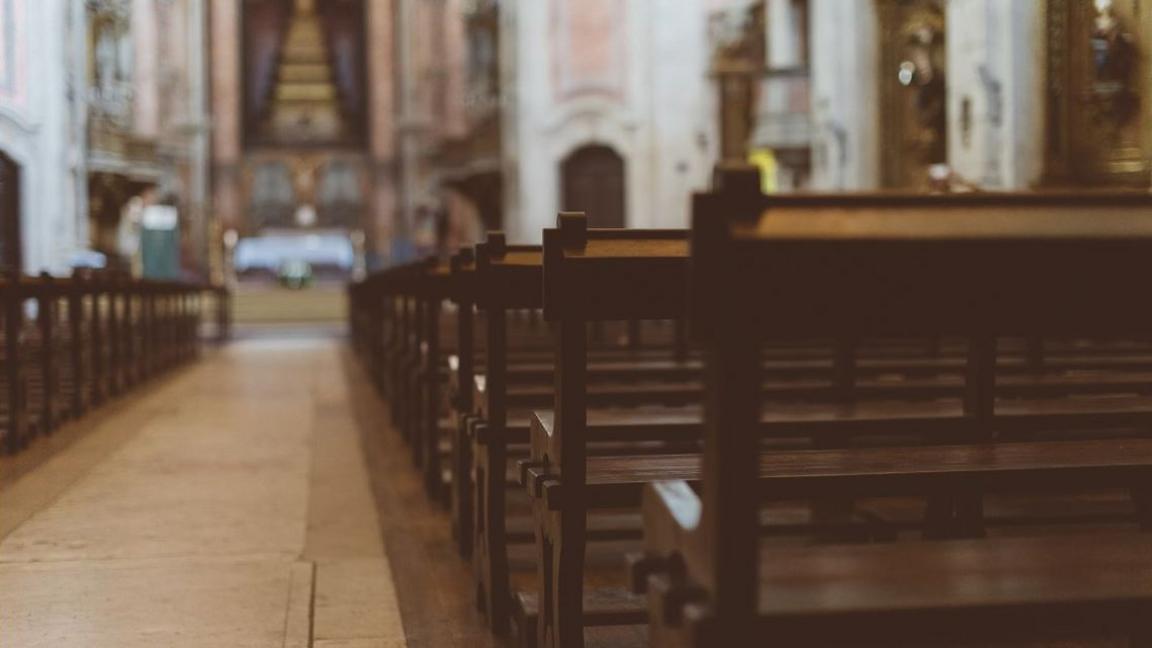
- Published23 April 2020
